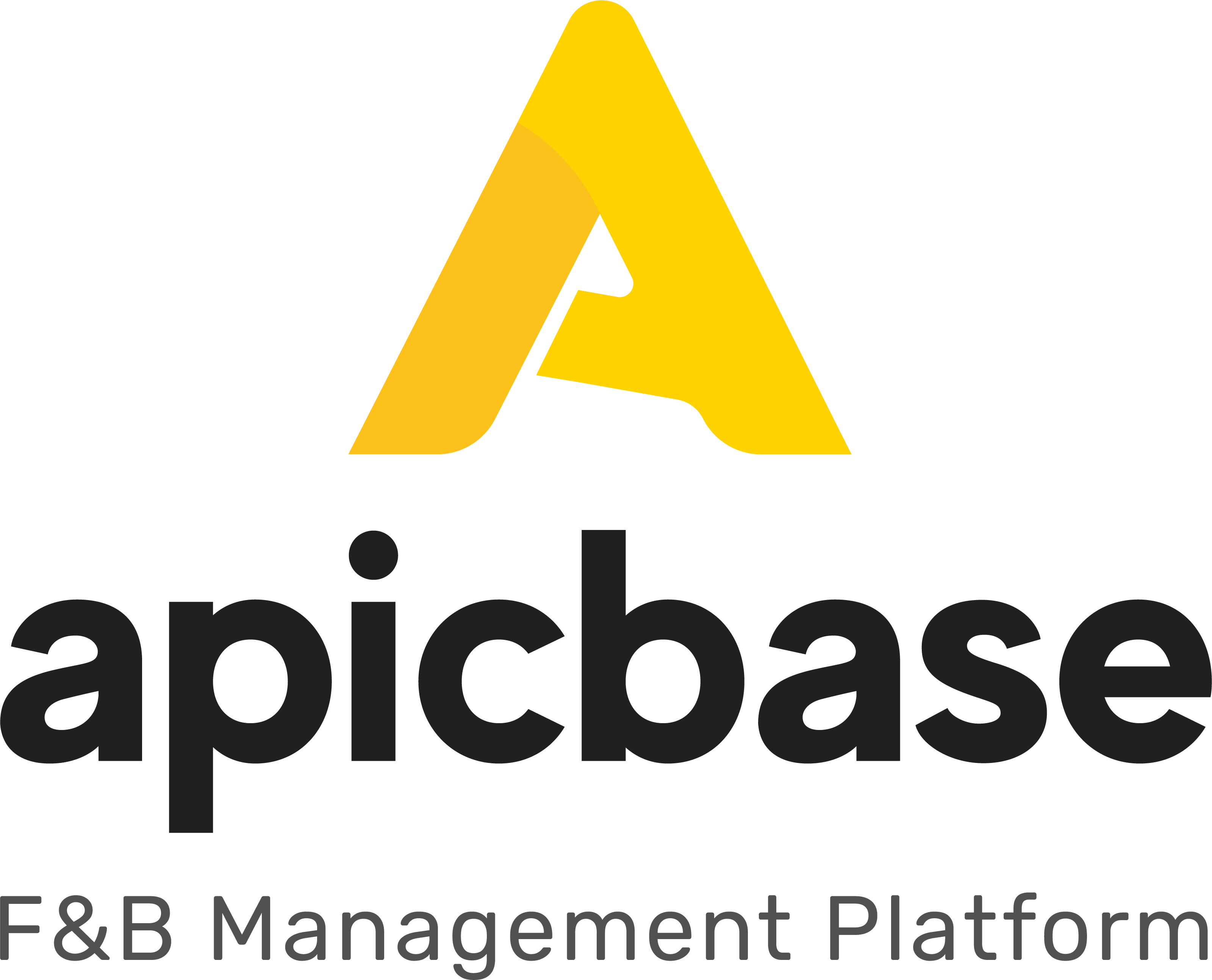Description

APICBASE

FoodDocs
Comprehensive Overview: APICBASE vs FoodDocs
APICBASE and FoodDocs are two software platforms designed to support food businesses in managing various aspects of their operations, but they do so in distinct ways and target slightly different market needs.
APICBASE
a) Primary Functions and Target Markets
APICBASE is primarily a food management software that caters to the hospitality industry, which includes restaurants, hotels, catering services, and food production companies. Its main functions focus on:
- Recipe and Menu Management: Helping chefs and managers create and manage recipes, scale them according to demand, and maintain consistency across dishes.
- Inventory Management: Tracking inventory levels to prevent overstocking or stockouts, and facilitate automated ordering processes.
- Procurement: Streamlines the purchasing process by integrating with suppliers and managing orders efficiently.
- Cost Control: Provides detailed insights into food costs to help businesses maintain profitability.
- Analytics and Reporting: Offers dashboards and reports for better decision-making based on sales, inventory, and food cost data.
b) Market Share and User Base
APICBASE primarily serves the European market, though it has been expanding globally. It is more prevalent among mid-sized to large hospitality businesses that require robust inventory and cost management solutions. Its market share leans toward businesses deeply invested in improving operational efficiency and profit margins.
FoodDocs
a) Primary Functions and Target Markets
FoodDocs targets food safety management and compliance, helping businesses comply with food safety standards, such as HACCP (Hazard Analysis Critical Control Point). Its core functions include:
- Digital Food Safety Management: Simplifies the creation and management of HACCP plans and other safety protocols.
- Automated Compliance Monitoring: Ensures that compliance checks are conducted regularly and recorded automatically.
- Training and Checklists: Provides training materials and checklists for employees to stay compliant with food safety regulations.
- Cloud-Based Records: Stores all records digitally for easy access and audit purposes.
FoodDocs is particularly popular among small to medium-sized food businesses, including restaurants, food trucks, and small-scale manufacturers, who must meet stringent food safety requirements without extensive administrative overhead.
b) Market Share and User Base
FoodDocs has a strong user base in Europe but also serves a global audience. It appeals primarily to businesses looking for a straightforward, cost-effective way to manage food safety compliance. Its market share is growing as more businesses seek digital solutions to meet regulatory requirements.
c) Key Differentiating Factors
-
Focus and Functionality: APICBASE focuses more on comprehensive food and inventory management, helping with cost control and business analytics. In contrast, FoodDocs is specialized in food safety management and compliance.
-
Targeted Business Size and Type: APICBASE is suited to larger businesses needing robust operational management solutions, whereas FoodDocs is aimed at smaller businesses focused on regulatory compliance without the overhead.
-
Geographic and Market Penetration: Both have solid bases in Europe but differ in their expansion strategies, with APICBASE having a broader global reach for inventory and procurement solutions, and FoodDocs focusing on expanding its compliance user base across various markets.
-
User Experience and Usability: APICBASE may have a more complex setup due to its extensive feature set, appealing to detailed-oriented operations. FoodDocs offers a more streamlined and user-friendly interface focused on compliance, making it easy for small business owners to manage food safety without specialist knowledge.
These key differences highlight how each platform tailors its offerings to meet specific needs within the food industry, allowing businesses to choose according to their operational focus and size.
Contact Info

Year founded :
2017
+32 3 808 20 94
Not Available
Belgium
http://www.linkedin.com/company/apicbase

Year founded :
2017
+372 514 0933
Not Available
United States
http://www.linkedin.com/company/fooddocs
Feature Similarity Breakdown: APICBASE, FoodDocs
To provide a detailed breakdown of feature similarities and differences between APICBASE and FoodDocs, let's explore each aspect:
a) Core Features in Common
Both APICBASE and FoodDocs cater to the food industry, with their software solutions focusing on food safety, compliance, and operational efficiency. Here are some of the core features they share:
-
Food Safety Compliance:
- Both platforms offer tools to ensure compliance with food safety regulations, such as HACCP (Hazard Analysis Critical Control Points) management.
-
Inventory Management:
- They have features to manage stock levels, track inventory usage, and reduce waste.
-
Recipe Management:
- Both provide functionalities for recipe management, including ingredient tracking, cost calculation, and nutritional analysis.
-
Auditing and Reporting:
- They offer capabilities for conducting audits and generating detailed reports, which are crucial for maintaining regulatory compliance.
-
Task Management:
- Features for assigning, tracking, and managing tasks related to food safety procedures and operational tasks are present in both platforms.
b) User Interface Comparison
While both APICBASE and FoodDocs prioritize user-friendly interfaces, there are nuances in their designs:
-
APICBASE:
- Known for its intuitive dashboard that offers a broad overview of inventory, recipes, and compliance metrics. It’s designed with visuals that allow easy navigation through various modules, appealing to users who prefer a visual-driven approach.
-
FoodDocs:
- Focuses on simplicity and ease of use, designed to guide users through compliance processes with minimal learning curve. Its interface is structured to provide quick access to compliance checklists and monitoring tools, benefiting users who prioritize straightforward compliance workflows.
c) Unique Features
APICBASE and FoodDocs each have unique features that distinguish them from one another:
-
APICBASE Unique Features:
- Image Recognition:
- APICBASE offers advanced image recognition technology to automate shelf monitoring and inventory management by scanning product images.
- Integrations:
- The platform boasts extensive integrations with other food industry software, enhancing its ability to synchronize data across systems for better resource management.
- Image Recognition:
-
FoodDocs Unique Features:
- AI-driven Solutions:
- FoodDocs leverages AI to assist in creating adaptive food safety plans and conducting smart checks for compliance. This makes the preparation and upkeep of safety documentation more efficient.
- Compliance Templates:
- It provides ready-to-use compliance templates that are automatically updated based on regulatory changes, helping streamline compliance processes for businesses of various sizes.
- AI-driven Solutions:
Both platforms contribute significantly to enhancing efficiencies in the food industry, offering valuable solutions tailored to improve food safety and operations. The choice between the two would largely depend on specific business needs and preferences regarding unique offerings.
Features

Inventory Management
Recipe Management
Supplier Management
Cost Control

Analytics and Reporting
Compliance Management
Team Efficiency
Data Security
Best Fit Use Cases: APICBASE, FoodDocs
APICBASE and FoodDocs are both platforms designed to streamline operations in the food industry, but they cater to different needs and scenarios.
a) Best Fit Use Cases for APICBASE:
-
Types of Businesses or Projects: APICBASE is particularly well-suited for medium to large-scale food businesses that need robust inventory management and kitchen operations solutions. This includes restaurant chains, food manufacturers, catering companies, and hotels with multiple locations that require centralized management.
-
Key Features and Benefits:
- Inventory Management: APICBASE is excellent for businesses needing a comprehensive system to manage their stock, track inventory levels, and optimize ingredient usage.
- Menu Engineering: It assists in designing profitable and efficient menus by providing insights into food costs and ideal pricing strategies.
- Recipe Management: Centralizes recipes to ensure consistency across different locations.
- Analytics: Offers data-driven insights to improve decision-making and operational efficiency.
b) Best Fit Use Cases for FoodDocs:
-
Types of Businesses or Projects: FoodDocs is ideal for small to medium-sized food businesses and startups that need to ensure compliance with food safety regulations. This includes restaurants, cafes, food trucks, and small food production units.
-
Key Features and Benefits:
- Food Safety Compliance: Provides an easy and efficient way to manage HACCP plans and maintain food safety records, making it ideal for businesses focusing on compliance requirements.
- Digital Food Safety Dashboard: Allows users to keep track of critical control points and comply with regulations effortlessly.
- Ease of Use: Designed to be user-friendly, making it accessible for businesses without extensive food safety expertise.
d) Catering to Industry Verticals or Company Sizes:
-
Industry Verticals:
- APICBASE: Strongly positioned in verticals where complex supply chains and large-scale operations necessitate detailed oversight, such as multi-location restaurants, large catering businesses, and food production companies.
- FoodDocs: Serves sectors where regulatory compliance is paramount, especially in smaller settings where streamlined solutions for documentation and compliance are critical, such as independent restaurants, cafes, and small manufacturers.
-
Company Sizes:
- APICBASE: Typically caters to larger enterprises or businesses with ambitious growth plans that require integrating multiple facets of the food operation into one platform.
- FoodDocs: Targets small to medium-sized enterprises that prioritize quick and easy implementation for maintaining food safety standards without extensive resources.
In summary, APICBASE is the preferred choice for businesses that focus on comprehensive inventory and menu management across multiple locations, whereas FoodDocs is the go-to solution for smaller businesses needing streamlined food safety compliance and regulatory support.
Pricing

Pricing Not Available

Pricing Not Available
Metrics History
Metrics History
Comparing teamSize across companies
Conclusion & Final Verdict: APICBASE vs FoodDocs
To provide a comprehensive conclusion and verdict for APICBASE and FoodDocs, we'll need to consider several factors including features, pricing, target audience, user experience, and scalability. Here's a synthesized overview based on these points:
a) Best Overall Value
APICBASE: Offers robust features focused on food management, inventory tracking, and recipe management, which can be highly beneficial for larger food enterprises with complex needs. Its comprehensive suite is designed to provide detailed insights and streamline operations effectively.
FoodDocs: Specializes in food safety compliance and documentation, making it an excellent choice for businesses that need to ensure stringent compliance with health regulations efficiently. Its user-friendly interface and automation capabilities are valuable for businesses prioritizing compliance.
Verdict: If the primary need is comprehensive inventory and operations management with a focus on recipe and kitchen management, APICBASE may offer better value. However, for businesses focused on food safety compliance, FoodDocs is likely to deliver superior value due to its targeted features.
b) Pros and Cons
APICBASE:
-
Pros:
- Comprehensive inventory and operations management tools.
- Detailed analytics and reporting for insights.
- Scalable for larger enterprises with complex needs.
- Offers integrations with other systems for seamless operations.
-
Cons:
- Potentially overwhelming for small businesses due to its complexity.
- Higher cost might not justify the investment for businesses focusing solely on compliance.
- Implementation can be resource-intensive.
FoodDocs:
-
Pros:
- Strong focus on food safety compliance.
- User-friendly and easy to set up.
- Automation of documentation processes reduces manual workload.
- Cost-effective for businesses prioritizing compliance.
-
Cons:
- Limited features concerning inventory and broader operational management.
- May not scale well with businesses growing beyond compliance needs.
- Integration capabilities might not be as robust as APICBASE.
c) Recommendations for Users Choosing Between APICBASE vs FoodDocs
-
Define Primary Business Needs: If the business’s primary concern is maintaining compliance and managing food safety documentation effortlessly, FoodDocs is likely the better choice. However, if the business requires a comprehensive solution for managing recipes, inventory, and overall kitchen operations, APICBASE would be more suitable.
-
Consider Business Size and Growth: Smaller businesses or startups might find FoodDocs more accessible and cost-effective, while larger enterprises with complex operations might benefit more from APICBASE's extensive features and scalability.
-
Evaluate Budget and ROI: Assess the budgetary constraints and the potential return on investment (ROI) from integrating either software. APICBASE's comprehensive suite may come with a higher price tag, justified by broader functionality, whereas FoodDocs offers a more niche but essential service at a lower cost.
-
Future Scalability: Consider the future scalability needs; businesses with potential growth plans might need the scalability that APICBASE offers, whereas those with static operations might suffice with FoodDocs.
In conclusion, both APICBASE and FoodDocs offer unique values depending on the specific needs and circumstances of a food-related business. Making an informed decision will depend largely on whether the business prioritizes comprehensive operational management or streamlined compliance processes.
Add to compare
Add similar companies



